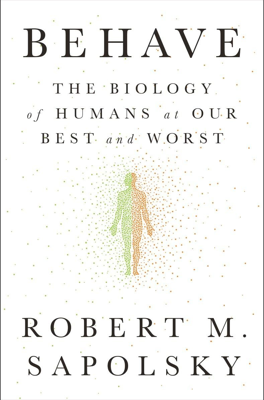Biology, the Criminal Justice System, and (Oh, Why Not?) Free Will
The chapter illuminates the intersection of neuroscience and the legal system, examining the persisting and controversial concept of free will in light of contemporary biological understanding. It challenges the effectiveness of the current criminal justice system and proposes a radical reconsideration of how law interprets human behavior.
Provocative Proposals and Neurolaw
Initially described is a provocative proposal by the author suggesting the abolition of the current criminal justice system due to its incompatible understanding of human behavior from a neuroscientific perspective. This proposal led to a conference and the burgeoning field of "neurolaw," where neuroscientists and legal experts explore and often debate the integration of neuroscience into legal contexts.
Fundamental Perspectives on Biology and Behavior
Three perspectives on the role of biology in shaping behavior are discussed: 1. Complete Free Will: Dismissed as illogical since certain medical conditions, like epileptic seizures, clearly undermine voluntary control. 2. No Free Will: Suggests behaviors are entirely dictated by biological processes. 3. Mitigated Free Load: A commonly held belief that while some behavior is biologically influenced, a "spirit" or "essence" within us can sometimes operate independently.
The M'Naghten Rule
This rule exemplifies the mitigated free will stance in law, which was established following Daniel M’Naghten's acquittal due to insanity when he committed murder under psychotic delusion. The rule posits that a person is not responsible for a crime if they could not discern right from wrong due to a "defect of reason from disease of the mind."
Ethical and Practical Dilemmas
The chapter critically examines several legal and philosophical questions concerning the attribution of criminal responsibility, such as the role of brain damage, the maturity of adolescents, and the influence of brain structure and hormones on behavior. It debates the notion of volition, especially distinguishing between "causation" and "compulsion" in criminal acts influenced by mental health disorders.
Neuroscience and the Legal System
Stephen Morse, a skeptic of integrating neuroscience into law, argues against the relevance of neuroscience in most legal contexts, suggesting that despite biological influences, the core concept of responsibility remains mostly intact. However, the inadequacy of current science to predict behavior based on biology highlights a significant challenge.
Reforming Views on Punishment
The chapter concludes with a radical rethinking of punishment in the justice system, arguing against the notion of punishment as a virtue and advocating for a system that focuses on rehabilitation and protecting society, rather than retribution. It stresses the need for humility and continuous learning in legal systems to adapt to ongoing scientific discoveries about human behavior.
Final Thoughts
The comprehensive exploration suggests that advances in neuroscience should lead to a fundamental shift in understanding free will, moving towards a system that acknowledges the biological roots of behavior without sacrificing the social need for law and order. The reformation of the legal system in light of neuroscience is not only necessary but also a reflection of evolving societal and scientific norms.
